Former India captain Kapil Dev does not foresee Zaheer Khan spearheading the team's attack for a very long time. He feels a fast bowler getting injured on the wrong side of age has to do something "extraordinary to come back".
"If a fast bowler starts getting injured at the wrong side of age, the recovery is very difficult. He would have to do something extraordinary to come back, otherwise he would play a few matches and get injured again," said Kapil, who took 434 Test wickets from 131 Tests with his fast-medium swing bowling.
Zaheer suffered an injury during the Lord's Test
Image: Zaheer KhanZaheer has served India for 79 Tests and taken 273 wickets, yet he hardly is able to go through a Test series without an injury, the latest instance being the one during the first Test at Lord's in July.
Kapil said he wants somebody to crack the whip on fast bowlers who are opting for softer options and not working hard enough.
"As I said, you have to bowl enough. When they lose pace and don't apply themselves, the dressing room has to be ruthless. They have to be brought out of their comfort level."
'Sachin can make a comeback'
Image: Sachin TendulkarThere are many who also see Sachin Tendulkar nearing the end of his one-day career -- he is sitting out of the ongoing one-day series because of a toe injury -- due to his advancing age and preference for Test cricket.
Kapil, though, believes Tendulkar's case is different from Zaheer's.
"With a batsman, it's different. Sachin can make a comeback. He has already done everything, there's nothing left. The one century [remaining] would come anyway.
"Sachin has to make up his mind what he wants to do. He knows his body and he alone can answer how good he feels. People like us who are sitting outside can't make a comment on it."
'Such an injury can have a defining effect on Gambhir's career'
Image: Gautam GambhirWhile on individuals, Kapil's concern also extended to Gautam Gambhir, who he regards as a brilliant batsman.
Gambhir recently suffered a head injury during the Test series.
"Gambhir's an exceptional batsman. But such kind of injury could have a defining effect on his career.
"Head injuries such as this can affect the balance and coordination [of limbs]," Kapil said.
'Fletcher should not be blamed for India's debacle'
Image: Duncan FletcherIndia's disastrous campaign in the Test series in England has brought the role of coach Duncan Fletcher into question.
Kapil, in reply, poses a question of his own.
"Tell me one thing, if Gary Kirsten was really that great with the Indian team, the team ought not to have done so badly within a few months of his departure.
"He would have left the basics in place. So, if Kirsten didn't play any role in India's rise, so Fletcher should also not be blamed for India's debacle."
'Every Indian bowler has met with injuries'
Image: RP SinghIndia's bowling resources look more barren, with a pacer like RP Singh being recalled to boost the bench strength after being in wilderness for over three years.
Kapil found fault in the way the Indian fast bowlers have been training.
"We have produced so many fast bowlers in the last 15 years. But, unfortunately, everyone has met with injuries. Being overworked is one thing. But they have also spent a lot of time in the gym rather than out on the field.
"They are not doing enough running, cross-country, looking to make their legs stronger. Most of the fast bowlers I have seen have a much stronger upper than lower body, the feet and legs.
"There's this new theory of not bowling enough in the nets. They are not bowling for longer hours at the nets. The more you bowl, the more you learn, the more your body get attuned to the task. I now see bowlers bowl on 4-5 overs in nets," he said.
'It's important to go to basics'
Image: Ishant SharmaKapil reckoned that it is not possible to become a good cricketer simply by sitting in the dressing room or in front of a computer.
"You don't become a cricketer, sitting in the dressing room or in front of computer, or watching footage on television.
"It's important to go to basics, do a lot of training and hard work. If you can do it, it would help you play for long periods.
"Playing for India is not a big thing. But can you play for 10 years? That takes a lot of hard work."
'Everything wrong came together for India'
Image: Kapil DevThe bowling icon was a model of fitness and didn't miss a single Test due to injury during his long career.
"God was kind to me. I did get injuries, but I got them in off-season. Unfortunately, today's cricketers don't have off-season. Everybody is greedy to make that bit extra. I hope we learn, players learn, administrators learn for cricket is becoming relentless these days."
Kapil gave credit to England for their stupendous win in the Test series.
"England was fantastic. After so many years, they can claim to have a team at this stage. They can beat anybody.
"As for Indian cricketers, they didn't get enough time to unwind themselves after the World Cup win. Within four days, they were playing in the IPL. If they had time, they could have done better. Everything wrong came together at the same time."
'Long term planning is a must'
Image: Kapil DevKapil didn't begrudge players making money from the IPL, but emphasised they also needed to look at the bigger picture.
"Making money is an incentive. It's not a negative thing. If you can make so much money in a month, it's fine. But you need to realize you have to perform in other formats as well."
For India to recover their status, Kapil called for a plan for a longer duration to be put in place.
"They have to put their heads together. Long term planning is a must. Short term gains wouldn't help. We should look at how we ought to be in 10 years' time."

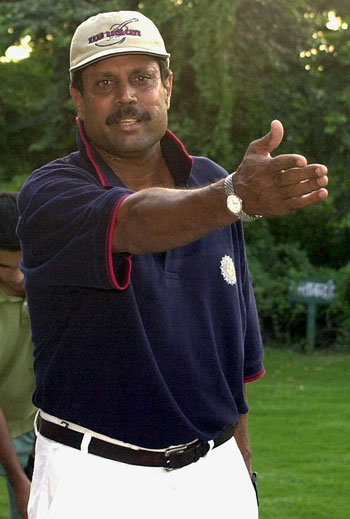
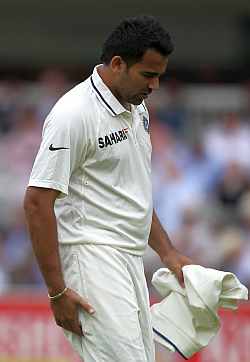
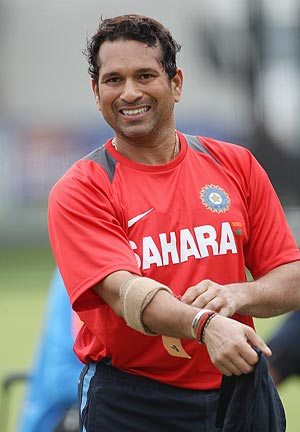
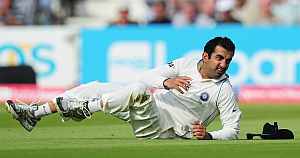



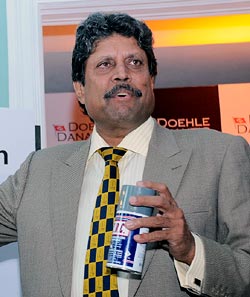
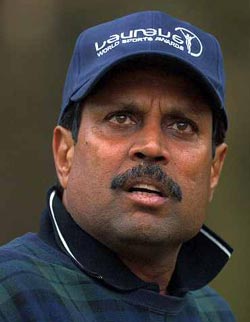
Comment
article